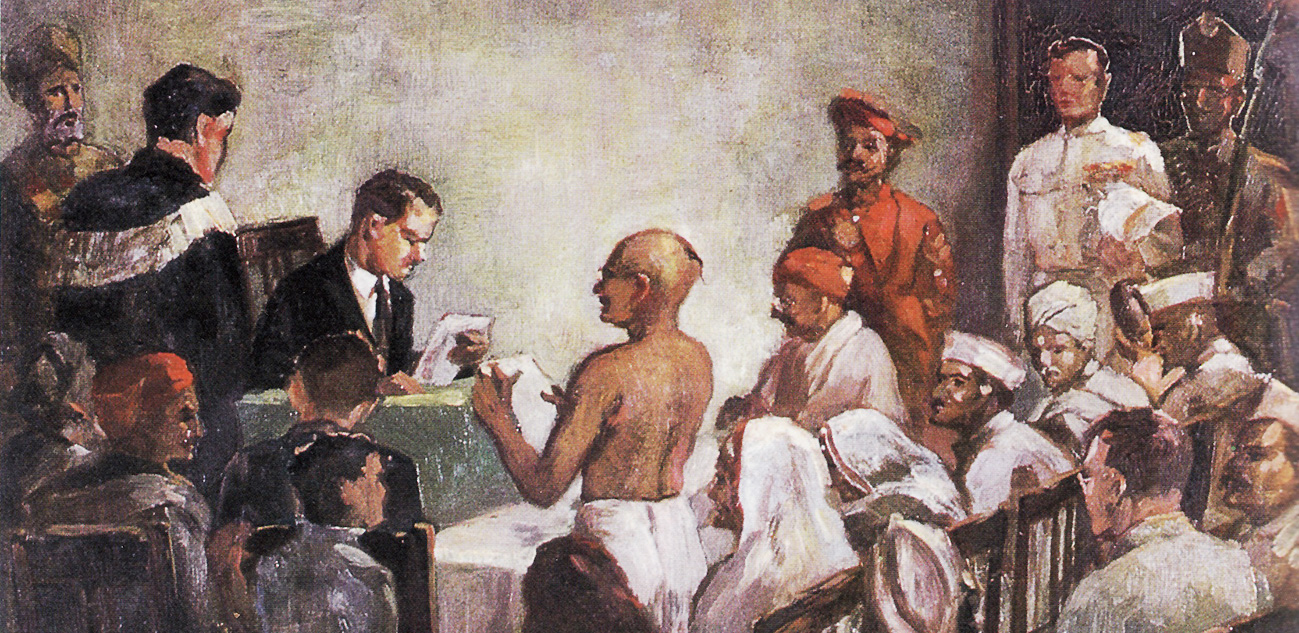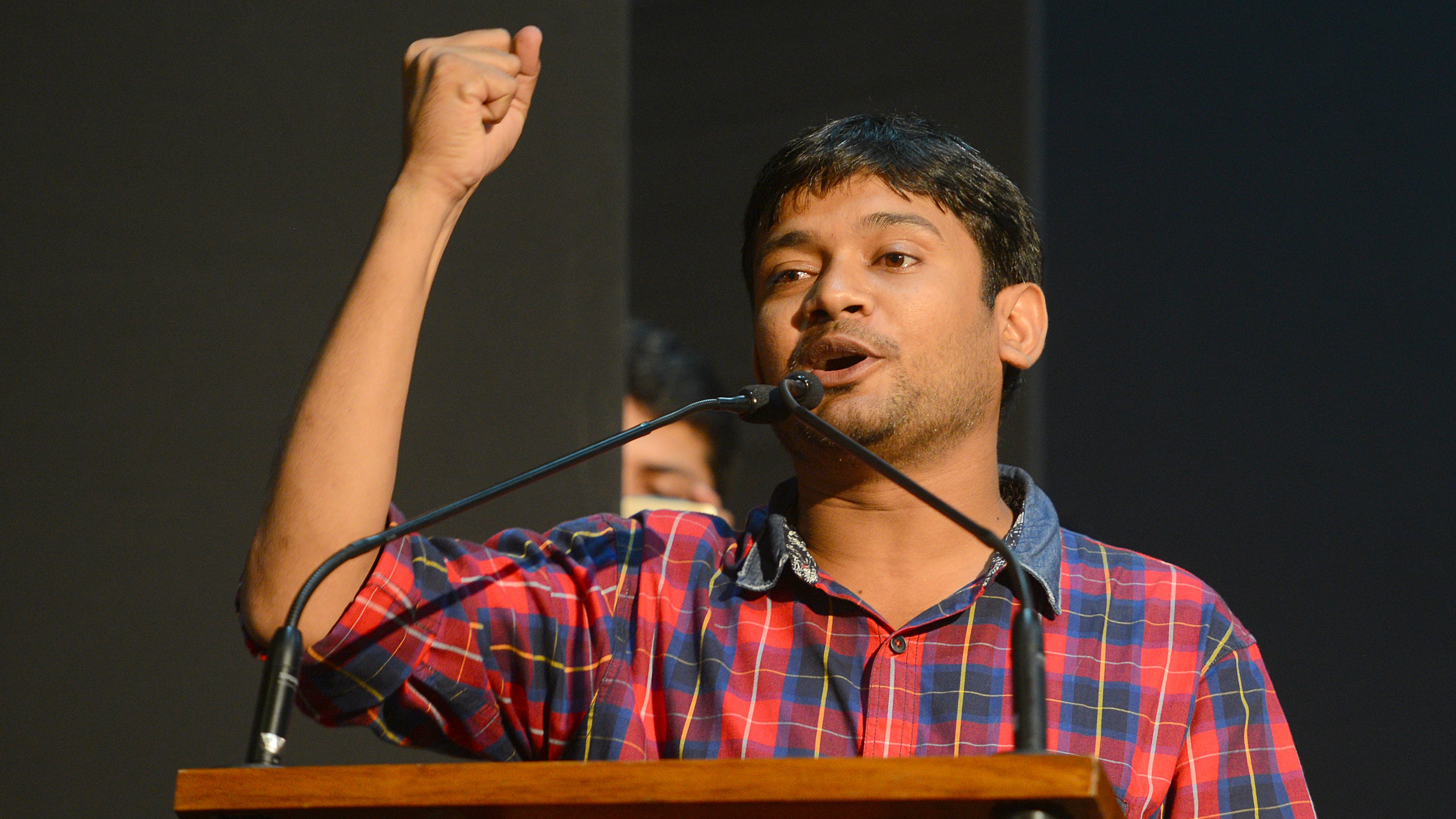Words, by their very nature, can be at once transparent and opaque. They may mean something quite different from what they appear to mean. The gap between the perceived meaning and the intended meaning can give birth, in happy times, to a comedy of errors or a farce; but in times such as ours, they become a sure recipe for tragedy. Take, for instance, the term, ‘sedition’. The apparent clarity of its perceived meaning can last only till you refer to a dictionary. The Oxford English Dictionary has for it quite a Janus-faced definition. One, it is “conduct or speech inciting to rebellion or a breach of public order”, something like sheer treason or an armed rebellion, or a willed spread of violence. Two, it is “agitation against the authority of a State”, which could range from a verbal attack on leaders, a dharna, open criticism to penning an article expressing views against the government. One may think that any person with any modicum of intellect will recognize the two as overwhelmingly different.
In linguistics, the divergence of the two meanings of ‘sedition’ will not pose any grave problem. In politics, it does. Take the recent case of Kanhaiya Kumar of the Jawaharlal Nehru University or that of Anand Teltumbde, an eminent researcher. Kanhaiya is booked for slogans he denies to have shouted, and Teltumbde for his alleged incitement at Bhima Koregaon. As I write this, more than 7,000 signatures are made on an appeal to quash the FIR filed against Teltumbde. But such is the law that if a lower level judge decides to apply it in letter alone, the appeal for a reasonable view of the case will simply be trashed.
Kanhiaya Kumar and Anand Teltumbde have not been isolated or exceptional victims of this repressive law. In the last few years it has been slapped against a number of authors, cartoonists, journalists, blog-writers and users of social media. In October 2015, it was used in Tamil Nadu to silence the folk singer, Kovan. The singer was arrested for composing a parody of the then chief minister, J. Jayalalithaa. Itinerant singers have been expressing people’s views and woes in India for the last three thousand years; but now they must seal their lips. Governments in many states and the Union government have been using the provisions of the Indian Penal Code, Section 124A, to gag critics of authorities by applying the second dictionary meaning of the term, ‘sedition’.
The formulation of the provision goes back to Lord Macaulay’s years in India, and to its more formal incorporation in the IPC in 1870. Very few eminent leaders of India’s freedom struggle escaped becoming victims of this draconian law. Bal Gangadhar Tilak was charged with it in 1897 and jailed; then again in 1908, jailed for six years and sent to Mandalay. Like him, Sri Aurobindo and Lala Lajpat Rai, too, were sentenced. Mahatma Gandhi had to face this charge also in 1922 for writing a series of essays considered by the judge in that case as ‘politically sensitive’, and punished with a six-year imprisonment. In all those cases, the writing was critical of the colonial Indian government. In fact, the secondary meaning of the term ‘sedition’, not treason but criticism of those in authority, was shaped by that history. However, that was when India was ruled by a foreign power. To continue to use the law with a similar understanding of its letters is not just anachronism but also anti-democracy.
Debate, dialogue, disagreement, dissent are all at the heart of democracy. They are necessary for voicing legitimate concerns of people who constitute a modern democratic state. Without these, no rule can be sufficiently democratic. It will simply be a unanimity driven dictatorship of majority. Sadly, it appears that in India we have come dangerously close to that situation. The IPC section on sedition does indeed have various caveats restraining authorities from using it undemocratically. However, the unwillingness to pay heed to them indicates that governments have become intolerant of criticism.
Going by the record of the government during the last four years, it is no longer necessary to ask if it has been unusually intolerant of criticism. That it is, beyond an iota of doubt. The question to ask is why it is so. The question can be stated more fully if we ask why governments in many parts of the world are increasingly becoming intolerant of people who elected them to power. In answering that question, it is not enough to merely point to the rise of a ‘new nationalism’ founded upon myopic ethnic, linguistic or theological identities. We must go beyond this obvious deviation and think of what made this possible. In that direction, the collapse of the bipolar world order and the emergence of transnational capitalism is one explanation, but probably the most visible. But there is more to it than meets the eye.
The truth is that societies themselves have become more intolerant than before. Perhaps, the intolerant and oppressive regimes and the right-wing political outfits showing their ugly fangs all draw support and a tacit consent from an unusually intolerant society. A world assured by science ready to overthrow the dominance of Nature over human life, pampered by material profusion created by an unchecked plundering of available natural resources, and fed upon the fantasies of limitless wealth accessible in an ‘open’ market, has given rise to a society that cares for nothing but economic success. The key word in our time is not ‘security’, it is ‘success’, an unhindered success. It is natural that if a vision of economic success alone becomes the universally accepted metaphysics, any questioning of the idea in word or action will be seen as ‘pure evil’. Societies blinded by craving for gratification of the desire to own are bound to pounce upon any word or act that cautions it against the blinding craze. Such a society is either keen to valorize the intolerant State or, when it is not an active collaborator in acts of suppression, is likely to be indifferent to such acts of the State.
Think of the clash between the rights of adivasis and the mining industry, or between expansion of infrastructure and the farmers whose land is acquired for it. A typical response to such a clash is: “So what? If it is necessary, it has to be done.” People no longer have the time to understand the plight of the sufferer and the agony of the victim. They would rather like to have a sanitized development package delivered at their doorstep which they can pick up without dirtying their hands and consume like a pizza. Such individuals have no qualms in supporting governments that suppress dissent, gag questioning voices and create an atmosphere of order, unanimity and esteem for majorities. They do not have the time to reflect if the economic order justified by them has any disastrous implications for the generations to come.
The reason why we cannot equate the repressive regimes in our time with the dictatorships of yesteryear is that, at present, each one of us is helping the regimes in consolidating its intolerant ways. As long as each one of us does not look within and accept humility as the necessary condition for survival of the Homo sapiens, the cases of wrongly slapped FIRs against anyone raising a voice will keep multiplying in number. If the species lasts the onslaught of greed and intimidation let loose in our time, and if we do not quickly effect a course correction, the future dictionaries of English may add one more meaning for the term, ‘sedition’. It will be “to think for oneself, to voice one’s concerns, to disagree with views of the majority”. Cultural historians will write about us that “The century that was initially called Knowledge Century created a society that developed aversion for questioning, the vary basis of knowledge”. Let us hope not.
The author is a literary critic and a cultural activist.
ganesh_devy@yahoo.com












